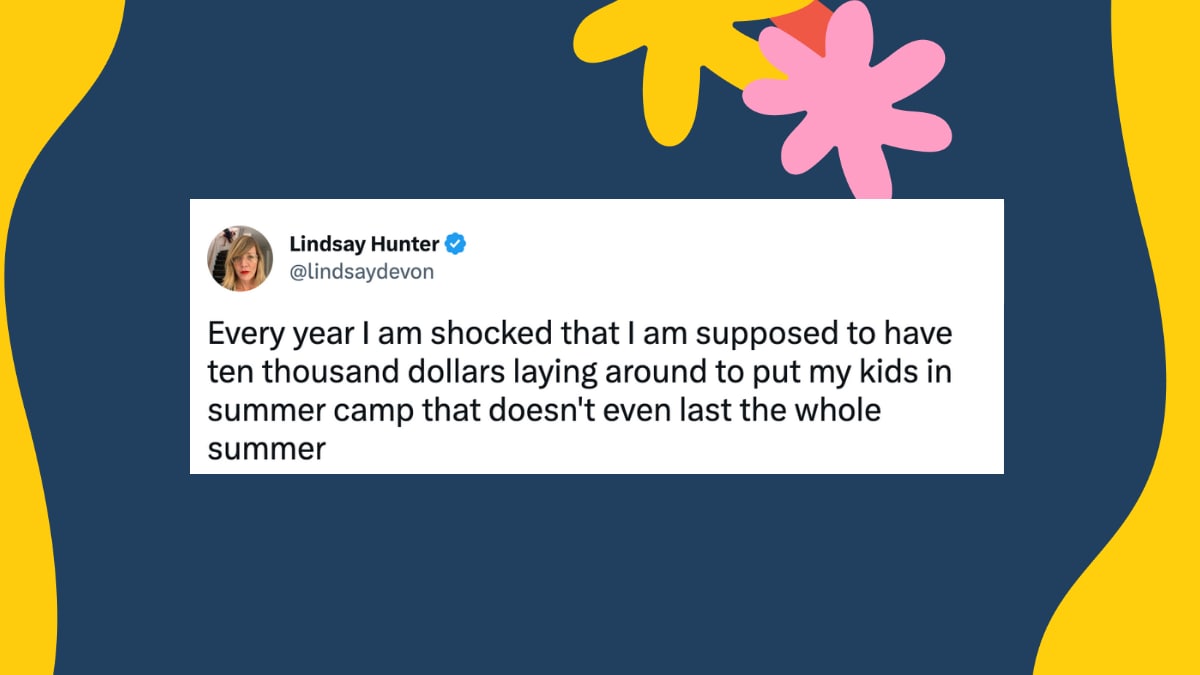It’s winter, and that means parents are worried about snow days, cold and flu season and … summer camp?
That’s right. As early as January, thousands of parents and caregivers who need child care during the summer have to jostle for limited spots and spend piles of money to secure sometimes only a few days in a reliable summer program. The competition and sky high prices are getting out of control, many of them say, and they are fed up.
The U.S. has a summer child care problem
In the past few weeks, several parents have jumped on social media to rant about what one writer for The Atlantic has dubbed “the January summer camp scramble.”
For very young kids, day care is a go-to option. But many parents of school-age children are forced to rely on a complex web of day camps and specialty classes to ensure their kids have care over the summer. Their posts capture every aspect of the terrible summer care planning experience, from annoyance at the dysfunctional registration websites to dismay over the starling lack of affordable care options.
“Every year I am shocked that I am supposed to have ten thousand dollars laying around to put my kids in summer camp that doesn’t even last the whole summer,” one parent writes.
“A cool thing about modern parenting is that even registering your kid for summer camp has become a competitive sport that requires getting up early and frantically clicking through a poorly organized website,” another parent adds.
Highlighting the astronomical price of seasonal child care programs, one mom writes that she’s already shelled out $600 for only a single week of summer care.
Another mom points out that even when you do manage to land a spot in a good care program, they often end at 3:00 p.m., much too early for parents who work standard 8 to 5 hours.
What happens when families can’t find summer care?
The difficulty of finding summer care isn’t just an annoyance. It’s a serious problem that impacts families in a variety of ways.
Only about 2% of parents say they stay home full-time. That number represents a slight increase in the number of stay-at-home parents since the start of the pandemic, but still means the vast majority of kids in the U.S. require care during the summer. At the same time, a 2019 survey by the Center for American Progress (CAP) found that 3 out of 4 parents report difficulty finding child care during the summer and more than half of respondents said covering the cost of summer care is a significant challenge.
The American Camp Association lists the average fee for a summer day camp as $178.49 per day, per child. If you’re looking for an overnight camp, the cost skyrockets to $448.53 per day for each child. The CAP estimates that, in 2018, a typical family of four could expect to pay more than $3,000 just for summer programs. And when families can’t find or afford quality care? The CAP survey found that they often have to make changes to their employment status, which usually results in lost income.
The bottom line on the scramble for summer child care
There are unique summer care options, like nanny shares and summer care co-ops, that can help more families access care while their kids are home from school. Of course, these options are largely dependent on where you live and the makeup of your social network. Some school districts and local recreation centers also offer free or lower cost care during summer break.
But, the bottom line is that summer care is a necessity for the vast majority of families, not an option. Parents shouldn’t have to spend the entire winter stringing together a bunch of luxury-priced July day camps to ensure their kids have a place to go.
In 2021, a writer for Time called on the Biden administration to include summer day camps in their push for universal child care. As of now, that call remains unanswered. If the number of frustrated parents on social media proves anything, it’s that it’s beyond time for the nation’s leaders to take the so-called summer scramble seriously. Summer may only last for a few months, but affordable child care is a necessity for American families year-round.





